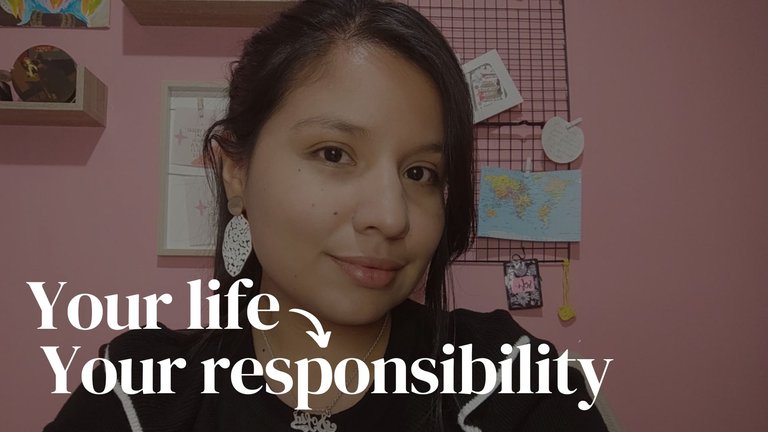No permitas que te intenten convencer sobre lo que es conveniente para ti [ESP-ENG]

Conciencia, voz interna, intuición... llámalo como quieras, todos tenemos "algo" en nuestro interior que nos mantiene sensibles a las señales de adentro y/o de afuera y que nos arroja información sobre cómo nos sentimos, señales de alerta, evaluaciones de nuestro propio comportamiento o el de los demás, nuestras decisiones, etcétera.
Puede darse el caso de que te sientas tan abrumado o confundido que necesites conversarlo con alguien para aclarar tus ideas. La sensatez de la persona que te escucha estará determinada, en parte, por su capacidad de comprender que su visión de tu realidad no es en lo absoluto tu propia realidad y que sus comentarios o consejos están tamizados por su propia experiencia, conocimientos, logros, fracasos, aprendizajes.
En ese sentido, podrá escucharte y sugerirte ideas pero también entenderá que no es tu obligación seguir al pie de la letra lo que plantea. Caso contrario ocurre cuando esta persona intenta convencerte de lo que es correcto, lo que deberías hacer y lo que es mejor para ti. Pasa con más frecuencia de la que me gustaría que familiares, amigos, incluso conocidos se toman este tipo de atribuciones. No dimensionan cómo atentan contra lo humano, la libertad de decisión y la responsabilidad que cada uno tiene sobre su propia vida. No pretendo decir con esto que lo hagan de forma malintencionada, al contrario, muy probablemente sus consejos y "mandatos" provienen de la buena fe. Lo importante aquí no es tanto el comportamiento del otro, sino el de uno mismo, ante su propia vida, pues solo uno cargará con las consecuencias de ella.
De allí el título de esta publicación, "No permitas que te intenten convencer sobre lo que es conveniente para ti" pues incluso cuando no solicitamos un consejo lo recibimos. Y ojalá fuese un consejo neutral, pero como he dicho antes, muchas veces es un consejo coercitivo, que limita el ser y mezcla las emociones en el proceso. Los "te lo dije" o "viste lo que te pasó por no hacerme caso" encubren esa postura aparentemente omnisciente, al mismo tiempo que engreída, de aquel que cree que puede saber más de la vida de uno que uno mismo.
Me gustaría advertir que esto no aplica en el caso de los padres y sus hijos pequeños, quienes mientras desarollan su capacidad de pensamiento y decisión requieren de la guía y el apoyo de estos.
"No permitas que te intenten convencer sobre lo que es conveniente para ti" aplica en el caso de las redes sociales cuando el propósito de educar se ha trastocado por el propósito de convencer y en el medio nos intentan vender un producto, un servicio, una crema, un suplemento, una idea. No digo que no necesitemos alguna de las cosas que nos venden hoy en día, pero estoy segura de que no lo necesitamos todo. En ese sentido, nos toca fortalecer nuestro criterio y, ante alguna duda, acudir con un profesional que nos ayude a determinar qué es lo que realmente necesitamos para nuestro caso específico.
Algunos usuarios esperan que la terapia psicológica les ayude a dilucidar el camino "correcto". Preguntas como "¿Debería emigrar?" "¿Termino con mi pareja?" "¿Tengo otro hijo?" "¿Renuncio a mi empleo?" son algunos de los cuestionamientos humanos, complejos que suelen llegar a consulta. El propósito de la terapia es el de acompañar al usuario a conseguir sus propias respuestas, en tanto se comprende y conoce a sí mismo. En consulta presentaremos sugerencias, plantearemos un plan de intervención, asignaremos tareas que favorecen los procesos de toma de decisiones, pero no es nuestro trabajo decirle a otro persona lo que debe hacer.
Insisto, no permitas que te intenten convencer sobre lo que es conveniente para ti. Solo tú lo sabes.


Consciousness, inner voice, intuition... call it what you will, we all have "something" inside us that keeps us sensitive to signals from within and/or without and that gives us information about how we feel, warning signs, evaluations of our own behavior or that of others, our decisions, and so on.
It may be the case that you feel so overwhelmed or confused that you need to talk it over with someone to clarify your thoughts. The reasonableness of the person who listens to you will be determined, in part, by their ability to understand that their vision of your reality is not at all your own reality and that their comments or advice are sifted by their own experience, knowledge, achievements, failures, and learning.
In this sense, he/she will be able to listen to you and suggest ideas but will also understand that it is not your obligation to follow to the letter what he/she says. The opposite happens when this person tries to convince you of what is right, what you should do and what is best for you. It happens more often than I would like that relatives, friends, even acquaintances take this type of attributions. They don't realize how they are threatening the human, the freedom of decision and the responsibility that everyone has over his or her own life. I do not mean to say that they do it maliciously, on the contrary, most probably their advice and "mandates" come from good faith. What is important here is not so much the behavior of the other, but that of oneself, in the face of one's own life, for one alone will bear the consequences of it.
Hence the title of this publication, "Don't let them try to convince you of what is right for you", because even when we don't ask for advice, we receive it. And I wish it were neutral advice, but as I have said before, it is often coercive advice, limiting the self and mixing emotions into the process. The "I told you so" or "you saw what happened to you for not listening to me" cover up that seemingly omniscient, yet smug, posture of the one who thinks he/she can know more about one's life than one does.
I would like to caution that this does not apply in the case of parents and their young children, who while developing their capacity for thought and decision making require guidance and support from them.
"Don't let them try to convince you about what is convenient for you" applies in the case of social networks when the purpose of educating has been replaced by the purpose of convincing and in the middle they try to sell us a product, a service, a cream, a supplement, an idea. I am not saying that we do not need some of the things they sell us today, but I am sure that we do not need everything. In that sense, it is up to us to strengthen our criteria and, when in doubt, go to a professional who can help us determine what we really need for our specific case.
Some users hope that psychological therapy will help them to elucidate the "right" path. Questions such as "Should I emigrate?" "Should I break up with my partner?" "Should I have another child?" "Should I quit my job?" are some of the complex, human questions that often come to consultation. The purpose of therapy is to accompany the user to get their own answers, as they understand and know themselves. In consultation we will present suggestions, we will propose an intervention plan, we will assign tasks that favor decision-making processes, but it is not our job to tell another person what to do.
I insist, do not let them try to convince you about what is convenient for you. Only you know that.
Todas las imágenes de esta publicación son de mi autoría, editadas en canva. El contenido también es original y propio.
All images in this post are my own, edited in canva. The content is also original and mine.
Muy importante todo lo que comentas @sofiaquino...
Un abrazo guapísima!
Gracias por tu lectura 🤗 un abrazo para ti también!